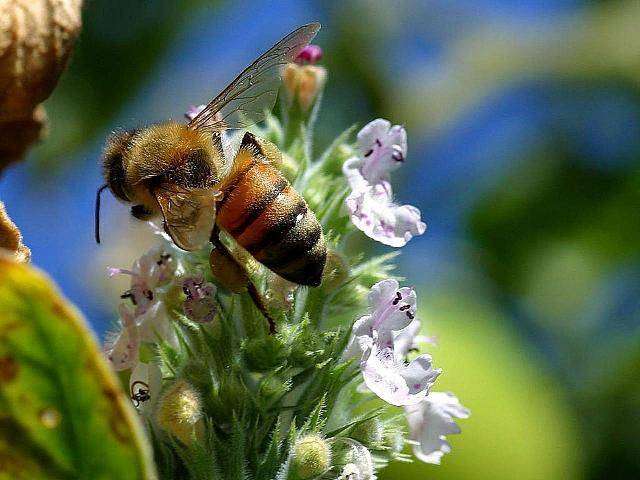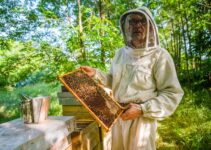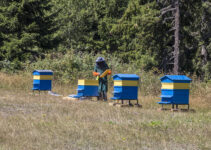BEE-lieve it or not, honeybees are among the most important insects in the world. Without their assistance, farmers and consumers would BEE in trouble. Although, they are tiny creatures, honeybees have an enormous impact on agriculture as well as the environment. What should BEE known about them to BEE in the know?
They are a non-native species.
Honeybees are not native to the United States. They were introduced to this continent by European settlers. Specifically, the first honeybees in the U.S. are believed to have been brought from England.
They are vegetarians.
Nectar and pollen are the staples of a honeybee’s diet. These items are collected when the insect visits the flowers of a plant. Pollen is the main source of a honeybee’s protein. The bees combine the pollen they collect with honey and glandular secretions which they allow to ferment in combs to produce “bee bread.”
They are social insects.
Honeybees live together in large numbers in a hive or colony. The typical size of a colony is around 20,000 bees, but the number can reach as high as 100,000. Insects in a hive fall in one of three categories–a queen, drones, and workers. There is only one queen; her job is to reproduce for the colony. Drones usually number a few thousand, while workers can number in the tens of thousands.
They are productive.
True to their name, honeybees produce honey. It is made when bees ingest nectar, process the nectar, and store the resulting substance in honeycombs. In addition to honey, the bees also produce beeswax, which is used to make candles and cosmetics, and royal jelly, a milky-white secretion utilized in alternative medicine.
They are pollinators.
Most of a honeybee’s life is spent on one specific task – collecting pollen for food. The hairiness of a honeybee allows the insect to be highly effective in catching pollen, which clings to its hair.
Honeybees are natural pollinators. One single bee can visit up to 5,000 flowers a day. These insects are particularly attracted to flowers which are white, yellow, and blue.
Pollination is important to more than 250,000 plant species. Honeybees are essential for pollinating fruits, vegetables, and nuts. Some crops, such as almonds, are almost exclusively pollinated by them.
One-third of food crops require pollination from bees either directly or indirectly. Honeybees enable production of at least 90 commercially grown crops in North America, including tomatoes, apple trees, and cantaloupes. Commercial farmers pay millions of dollars each year to rent bee colonies on their land to encourage proper pollination of their crops.
Their population is on the decline.
A significant loss of honeybees has occurred over the past few decades. Beehives numbered around 6 million in 1947, but their numbers plummeted to 2.5 million in 2014.
A combination of causes produced this drastic decline. These factors include climate change, exposure to pesticides, disease, lack of genetic diversity, and loss of plants on which to forage.
The plight of the honeybees reached a crisis point in 2006 when beekeepers began reporting the sudden disappearance of entire colonies. This phenomenon, dubbed CCD (colony collapse disorder), was likely caused by pesticide use.
The drop in the honeybee population impacts agriculture as well as the environment. Dwindling numbers of this insect have driven up the cost of commercial pollination and has a negative impact on the agricultural sector reliant on these bees for crop pollination. The loss of wild hives affects the environment as such colonies are essential for biodiversity.
While very small, the honeybee plays a big role in our society. It aids in production of crops, pollination of plants, and maintaining biodiversity. Dwindling numbers of honeybees are a concern due to the negative impact their loss has in these areas. BEE-ing in the know about them is the first step to addressing the threat to this important insect.




